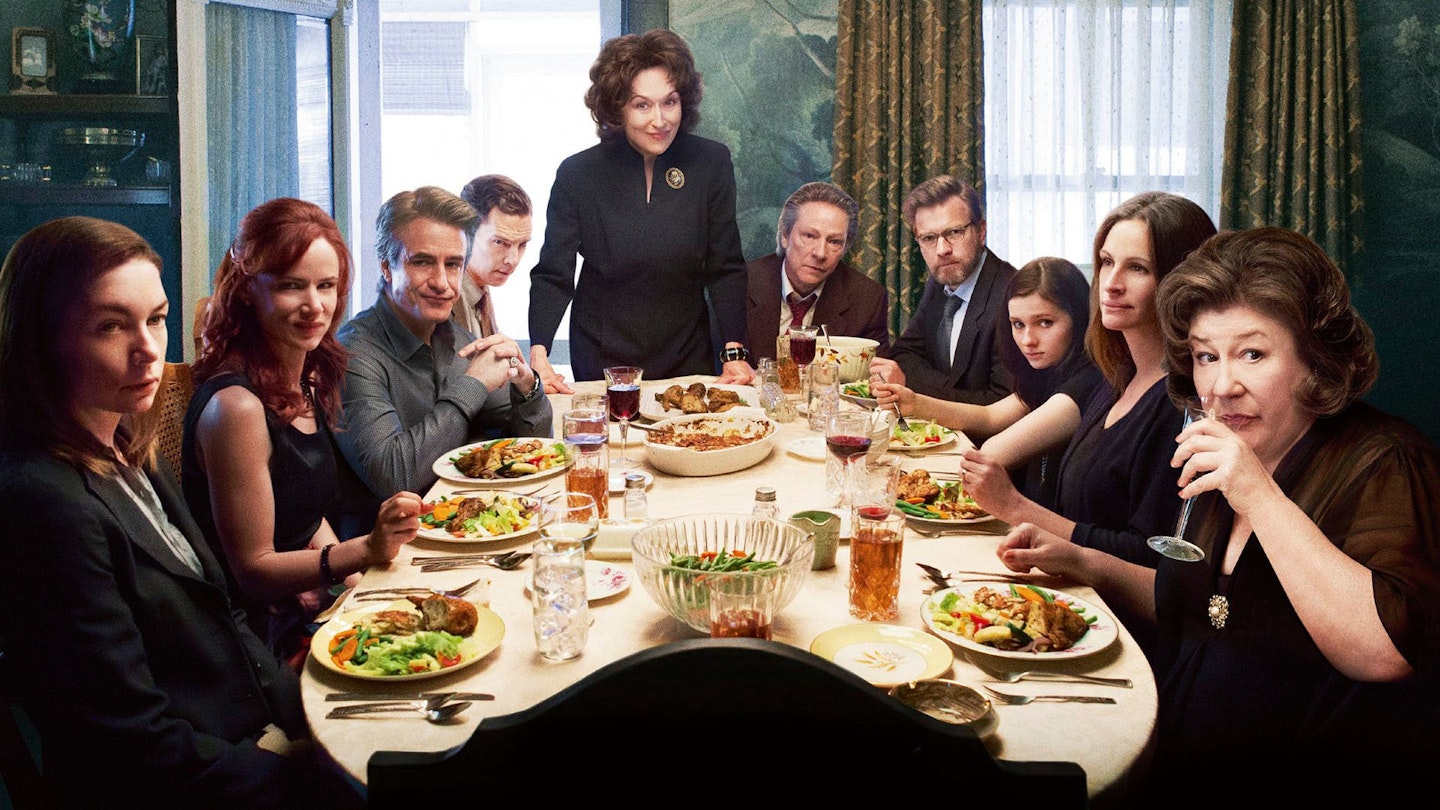There are five Oscars and 24 nominations amongst the cast of August: Osage County and it’s easy to see the attraction. In the tradition of The Grand American Play, Tracy Letts’ Pulitzer Prize-winning 2008 drama is a catalogue of barbed witticisms, big speeches and hothouse intensity, all in the service of a family falling apart at the seams. ER main man John Wells has mounted a Greatest Hits package — the film has filleted an hour out of the stage version — marked by strong performances, pedestrian filmmaking and enough stand-offs to rival a year on Albert Square.
Early doors, the film struggles to find its feet. The set-up — the disappearance of paterfamilias Beverly (Sam Shepard), his family’s reaction — feels fuzzy and off-key. Things don’t coalesce until a terrific 25-minute dinner scene, in which Meryl Streep’s pill-popping, sunglass-sporting matriarch Violet trades insults and barbs with everyone. It’s a compelling rhapsody in meanness that will make you laugh and recoil.
Streep’s Violet makes The Devil Wears Prada’s Miranda Priestly look like a librarian, but for every bit of grandstanding cruelty, there are subtle moments too. She is matched by Julia Roberts in one of her juiciest roles in yonks, flitting between fatigued disappointment and white-hot rage. Around the Big Two, Juliette Lewis registers as Violet’s brassy daughter, Julianne Nicholson (sweet sister) and Benedict Cumberbatch (dumb nephew) give the film a skein of sympathy and Chris Cooper (quiet uncle) has a terrific moment sticking up for his put-upon son.
Yet the film feels bogged down by John Wells’ lack of directorial brio and thematic ambition. Early on in voiceover, Barbara (Roberts) suggests the Plains, where the action is set, is “a state of mind, right? Some spiritual affliction like the blues”, but there is a sense that the film isn’t investing in the Westons as a metaphor for American malaise. It’s happy to settle for an entertaining game of unhappy families.
